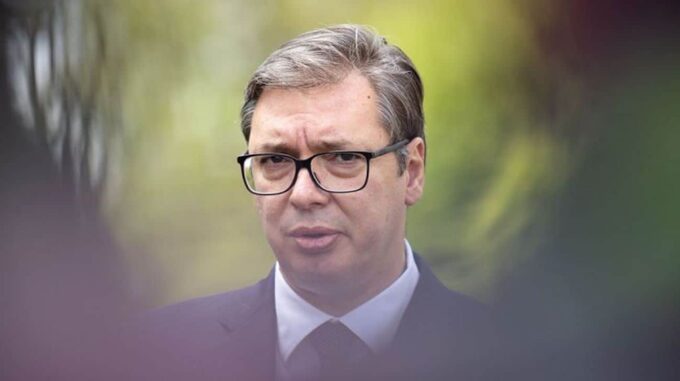Serbian President Aleksandar Vučić confidently declared that he will carry out his planned visit to Moscow on May 9, despite international pressure and internal political circumstances

Known for his ambiguous statements and desire to maintain a balance in complex international relations, he explained his position by stating that he had given his word to Russian leader Vladimir Putin back in July of last year. According to the news agency "European Pravda," citing sources, during a press conference in the United States on May 1, Vučić hinted that even though many questions about security and political risks currently arise, the word he gave to Putin holds weight and is considered obligatory to fulfill. The Serbian president emphasized that eight months ago he promised to support his Russian counterpart on this special day, and therefore has no intention of breaking his commitments now. "My word is not just words. I have never lied or betrayed my promises. This is not only important from an international standpoint but also from the perspective of honor before my people and my country. No one else can decide for me who should go and who should not. My personal convictions and responsibilities do not allow me to change my decisions unless I see valid reasons or a real threat to Serbia," Vučić stated. He added that his visit to the USA and meetings with European diplomats in the next two weeks are crucial for determining his further steps. "Many European colleagues will visit us, and discussions about the possible visit to Moscow will be one of the main topics. However, so far, none of them has convinced me that it is worth abandoning this idea. It is very difficult to do so with people who try to manipulate me and impose their position," the president emphasized. Meanwhile, the EU continues an active diplomatic campaign aimed at urging member states and candidates for membership to exercise restraint regarding visits to Russia on May 9. The European Union’s chief diplomat, Josep Borrell, and EU High Representative for Foreign Affairs and Security Policy Kaja Kallas, called in April on the leaders of the Union not to participate in military celebrations in Moscow. They emphasized the importance of showing solidarity with Ukraine on that day and underlined that the EU has clear recommendations for candidate countries to avoid visits to Russia during this period. It is noted that several countries seeking to join the EU have received directives to refrain from conducting official visits and participating in parades in Moscow on May 9, aiming to avoid symbolic support for Russian military celebrations. This reflects rising tensions in diplomatic circles and the West’s attempt to diminish the political legitimacy of the Kremlin at a time of particular international significance for Russia and its leadership. Thus, the situation surrounding Vučić’s visit remains tense and multifaceted. The Serbian leader insists on his promise and aims to preserve his personal and political image, while Western countries and the European Union structure urge restraint in participation, citing solidarity with Ukraine and opposition to Russian aggression. The decision of Serbia’s President is considered one of the most significant political choices in the context of the strained international order, which is continually influenced by new challenges and complex diplomatic balances.

